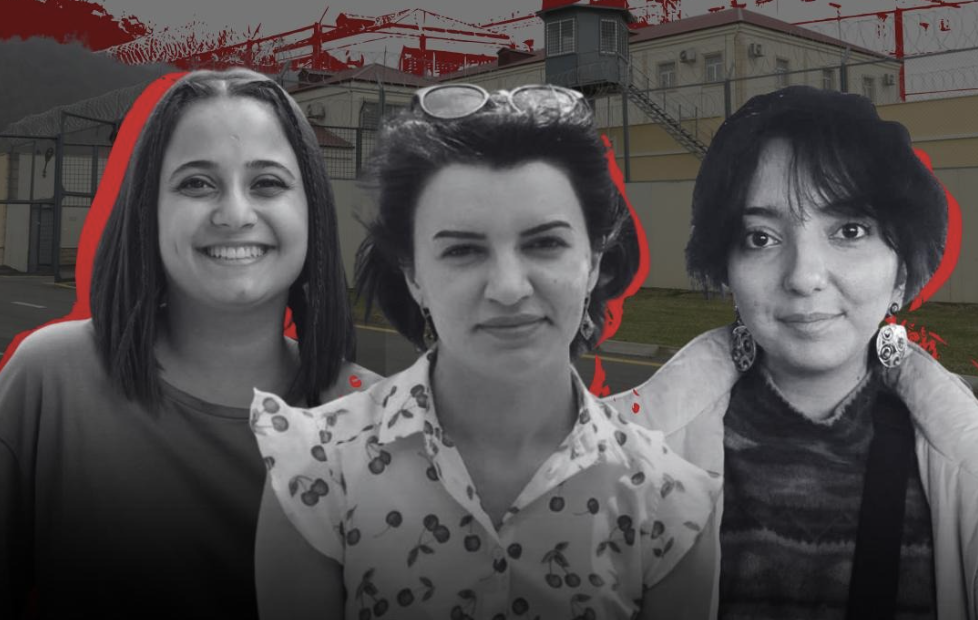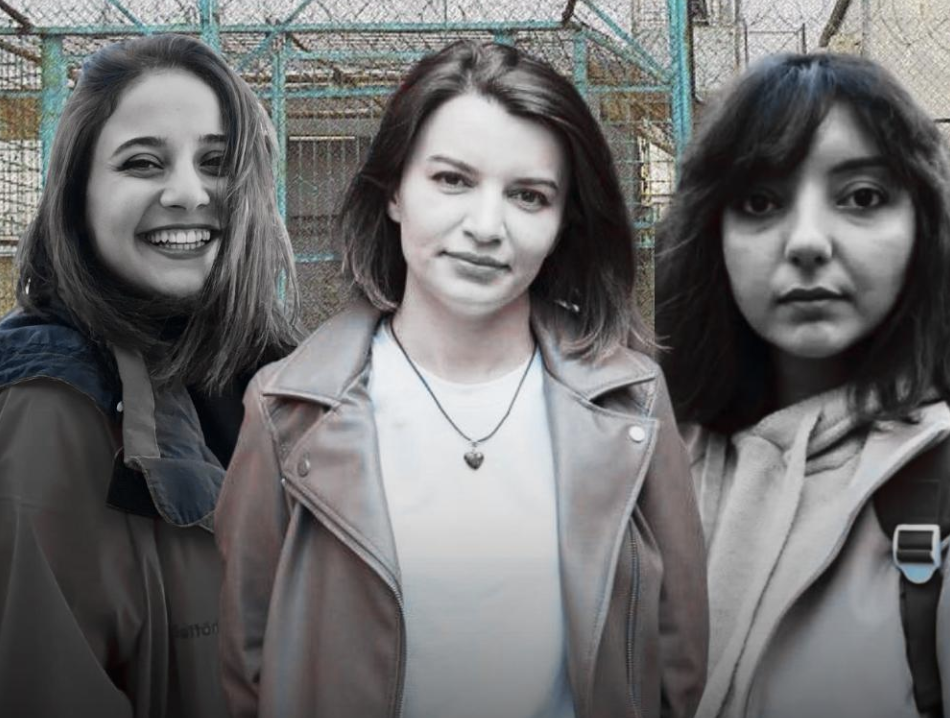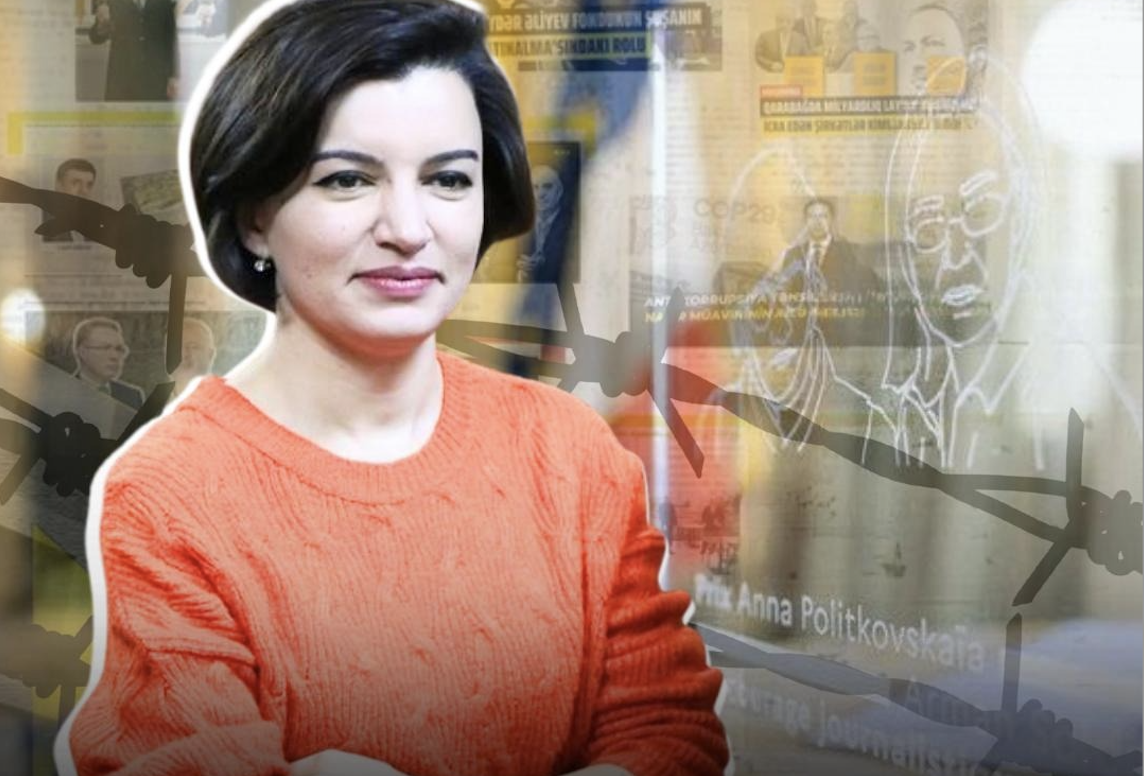Abzas Media journalist Nargiz Absalamova delivered her final statement during the court hearing on June 20.
She was sentenced to 8 years in prison.
The full text of her final courtroom statement.
I am Nargiz Absalamova. I’m the Nargiz who had to fight even her family to become a journalist, who ran from the flattery-based, tabloid-style journalism taught at Baku State University and threw herself into real journalism—only to be arrested at the age of 25, falsely accused on 7 charges, and held in detention for the past 1 year and 7 months.
To be a journalist in a country like Azerbaijan means to fight. And to be a woman journalist makes that struggle even harder. Why?
From the very beginning, even during entrance exams my family and relatives opposed my desire to become a journalist. I fought them, too.
In the end, I made it, I became a journalist. But then came the next fight: dealing with the police to be able to report from the field. I was assaulted multiple times while covering protests. After each one, I’d count the bruises on my legs and arms. I was taken to police stations repeatedly, questioned for hours, and subjected to both psychological and physical pressure. A sham “Media Law” was passed to restrict independent outlets. We protested. We resisted that so-called law.
At one protest, police used force again. They pushed us, knocked us down, that’s when I broke my tailbone. I spent a whole year going from doctor to doctor before finally getting surgery and recovering. And as if that weren’t enough, I was arrested. Now, even behind bars, we’re still fighting. This time with the prison authorities, just to be able to keep working.
I know that even if I’m released one day, I’ll have to start all over again. Even now, the words of relatives like, “This wouldn’t have happened if you had controlled her, if you hadn’t let her become a journalist” find their way into the prison walls. But I have no regrets. Not about choosing this path, and not about the battles I’ve had to fight along the way. I have no regrets, because the children and grandchildren of those who kept silent in the face of injustice, just to protect their own comfort, are now the ones paying the price for that injustice.
Today it’s us. Tomorrow it will be the next generation.
If there is injustice in a country, one day it will knock on every door. Rasim Sadikhov, Novruz Karimov, Leyla Asgarova, Rauf Malishov — when it knocks on yours, all the money you’ve earned by putting us behind bars won’t be enough to help your children and grandchildren. Because through your actions, you too have played a major role in allowing injustice to be trampled underfoot.
What does the imprisonment of journalists mean? It means leaving ordinary citizens defenseless against lawless police officers and corrupt officials. Journalists are often the last hope for people who have already lost faith in the legal system. Our arrest is also an attempt to take away that hope.
By imprisoning us, the government tried to extinguish the light that shows what is really happening in the country. But what happened instead? We shone that light into places they had long kept hidden — into the detention centers and prisons.
We exposed the normalized corruption inside the facility, the bribery, the medical neglect, the failure to provide basic supplies, the rudeness of the guards, and the absence of hot water that’s supposed to be available daily. And we heard— the same detainees who once asked, “Why were you writing? Was it worth it?” began to say months later, “They’re finally fixing the ward. It’s good that you were arrested.”
As for the false accusations in the investigation files—well, they’re just that: false. Out of 27 volumes, the only so-called “evidence” against me is that I traveled abroad, had a bank card, and the testimony of Mahammad Kekalov. Mahammad has since retracted his statement. My travel is a constitutional right, and I’m sure very few people today live without a bank card. Those 27 volumes are so empty, it’s a waste of time even talking about them.
All I ever did was try to do my job with integrity and I’m continuing to do it even from prison.
Rasim Sadikhov, during one of the previous hearings, you said, “Laugh. Let’s see who laughs last.” Well, you’ll see—we’ll still be the ones laughing even when you read out our sentences. If you think this is the end for us, you’re mistaken. We will continue exposing corruption and injustice in every prison you send us to. I doubt that will bring a smile to the face of whoever gave you your orders.
Whenever we mention that our arrests are tied to the president and his circle’s corrupt dealings, your face change color. And every time üe laugh at how nervous you become.
You’re so afraid of the truth, you can’t even bear to hear it from young people like us. So this time, we came prepared. Even if we can’t encourage you to make a just ruling, we brought you heart medication. After our statements, I doubt your pulse will stay steady. These pills aren’t a gesture of compassion, they’re just to avoid delaying our trial if you collapse. After all, it doesn’t really matter which judge delivers Ilham Aliyev’s verdict.
A court that doesn’t control its own words deserves only our laughter. Sooner or later, we will all be acquitted. And the Azerbaijani government will have to admit its wrongdoing before international courts.
That’s why our laughter cuts through this serious-looking courtroom illusion. Because deep down, you know it’s just a farce. That’s what really bothers you.
But there’s a solution—Valedol or Karvalol. Don’t worry, they’re made in Russia. Taking them won’t go against your government’s foreign policy.







